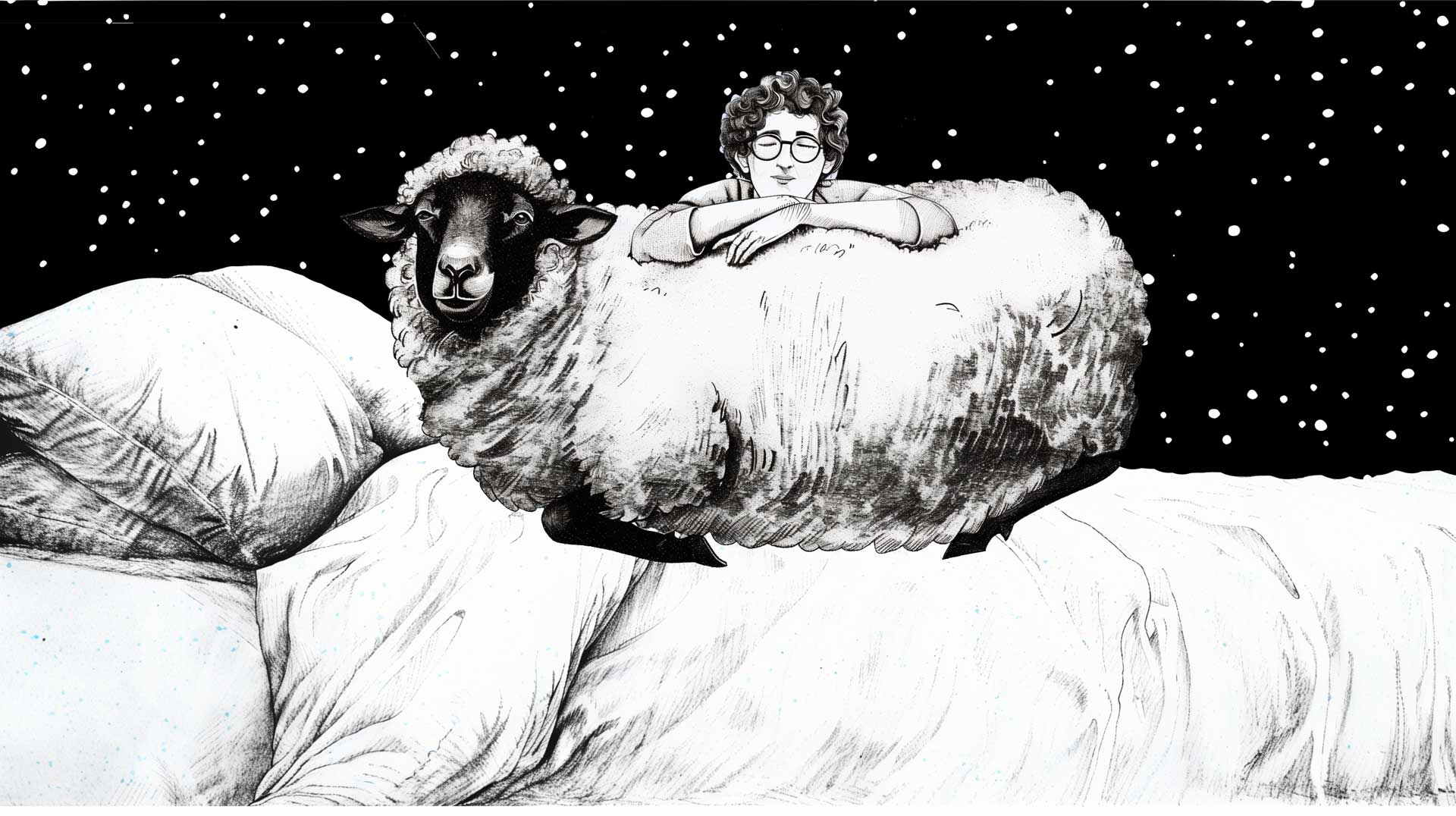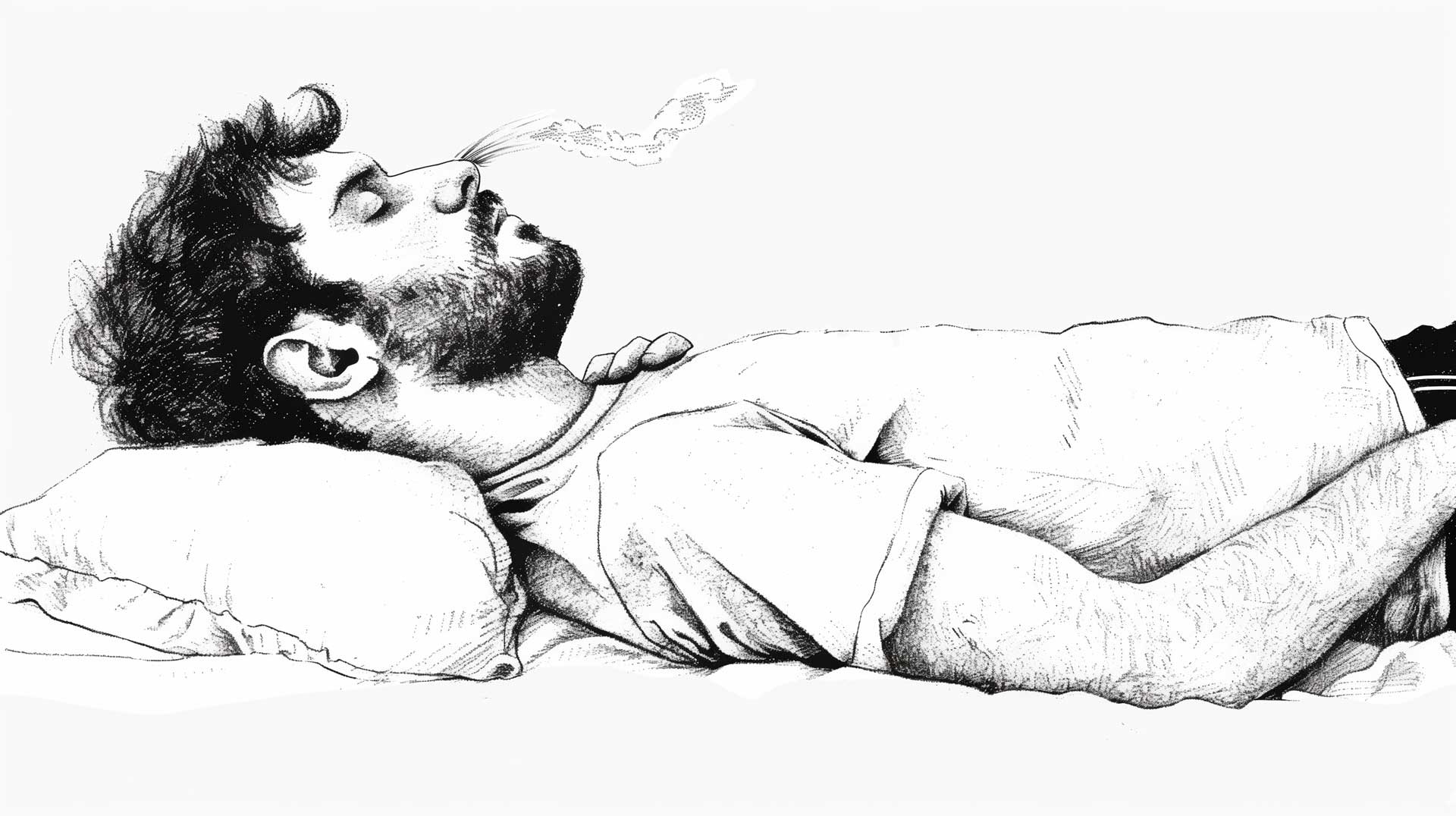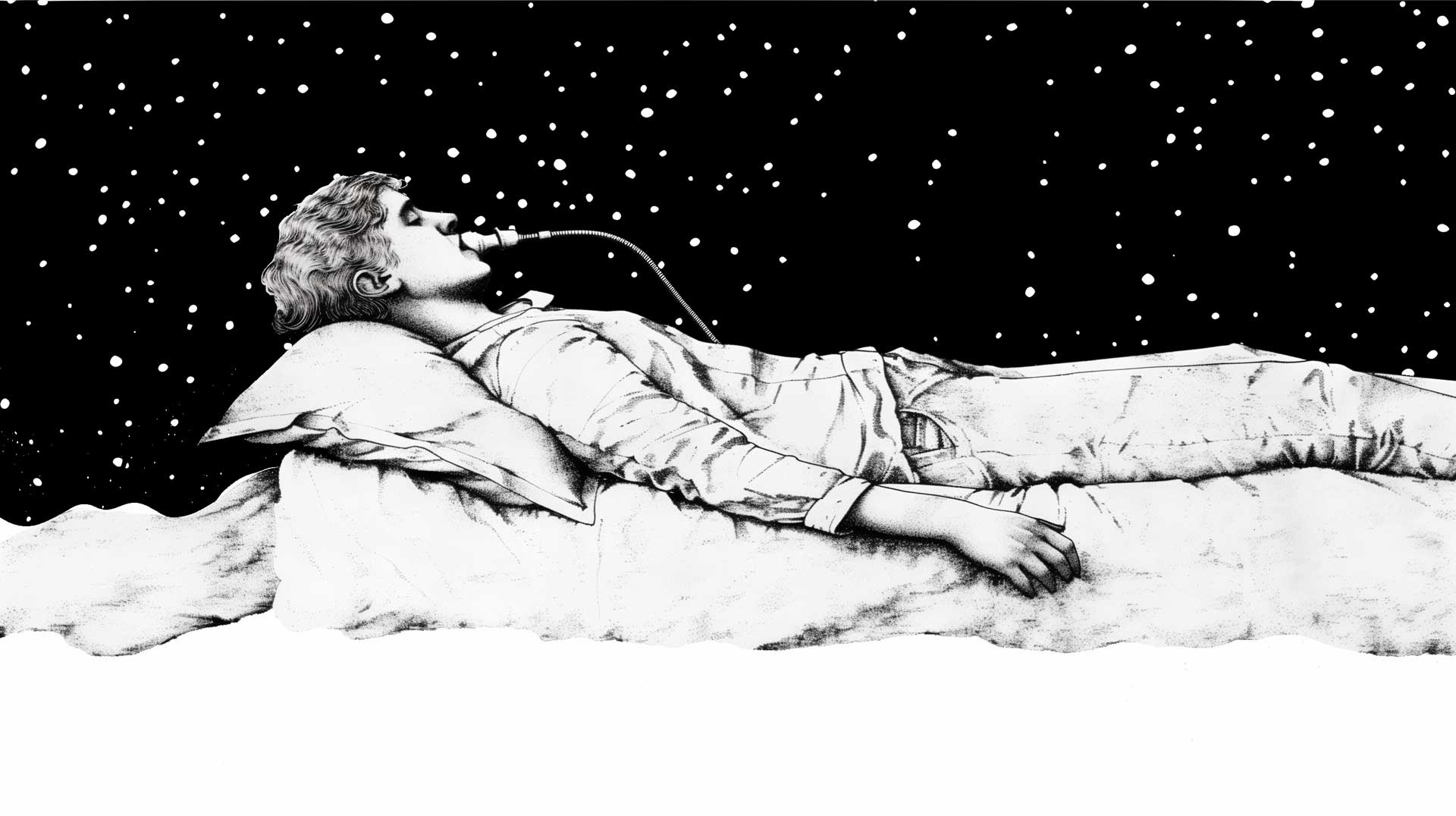Did you know that the average American spends over three hours on their mobile devices each evening? With this trend it’s only fair to ask how electronics, more specifically our screens affect our sleep. Screen use, whether Smartphone, Laptop or TV has an impact on your sleep quality, but how? And how can you minimize this impact? (Yes, you can!)
In the conversation of digital devices and bright light before sleep the word blue light is always present. But what is blue light even exactly? What makes it so special, what does it trigger in our body, and why? What are its negative and even positive effects, and how can you use it to your advantage? All those questions and more will be answered in the following.
What is Blue Light?
Blue light is a type of visible light characterized by a shorter wavelength and higher energy compared to other colors in the visible spectrum. Which colors we see always depends on the wavelength of light. Blue light ranges from approximately 380 to 500 nanometers. The energy of light increases as the wavelength decreases. This makes blue light one of the most energetic forms of light that is still visible to the human eye. This high energy plays a role in its effect on us, later more on this.
Interestingly, despite its name, blue light does not necessarily appear blue to the human eye. The perception of color is a complex process involving not just the specific wavelength of light, but also how it interacts with the eye and brain. Blue light contributes to the perception of blue when combined with other colors but can also contribute to the perception of white or other colors depending on its context and combination with other light wavelengths. For example, the white light from your smartphone or computer screen is created by combining blue light with other colors. This combination allows digital devices to display a full spectrum of colors to the human eye, despite a significant component of that light being in the blue wavelength range.
Sources of Blue Light
- Natural Sources: The main natural source of blue light is sunlight. Outdoor environments during daylight hours are the richest environments in blue light. This natural exposure helps regulate the body’s circadian rhythm (internal clock). When the eye is exposed to blue light it signals our body to feel more awake and alert.
- Artificial Sources: Artificially, blue light is mainly emitted by digital screens (found on smartphones, tablets, computers, and televisions) and modern energy-efficient lighting (LEDs and fluorescent bulbs). The initial light we see from those screens is white light. That’s because the blue light is combined with phosphors to create the white light. This white light is then filtered to get the full color spectrum on the screen.
Does Blue Light Affect Sleep?
The answer is yes. Blue light impacts sleep. It effects our sleep patterns by affecting melatonin production. Melatonin is a hormone produced in the brain, primarily responsible for regulating sleep-wake cycles. By influencing melatonin blue light is affecting our internal clock. How big this effect is:
How Blue Light Impacts Sleep
- Melatonin Suppression: Melatonin is a hormone which signals the body to prepare for sleep. Its production is increased in the evening and peaking at night. Blue light suppresses melatonin production more effectively than other light types. This suppression can delay when you fall asleep and diminish the quality of your sleep. But note that all visible lights can suppress melatonin production to some degree. Studies have shown that blue light suppresses melatonin for about twice as long as for example green light. Essentially, while non-blue lights also affect melatonin production, blue light does so much more powerfully. This is due to the specific wavelength and therefore energy it has.
- Circadian Rhythm Disruption: Our circadian rhythm is our body’s internal clock. It signals when to get tired and go to sleep as well as when to be awake and alert. Melatonin is a hormone greatly impacting this internal clock. By affecting melatonin blue light is influencing our internal clock. This shift can lead to sleep disturbances, impacting your overall sleep quality.
The Role of Natural Blue Light
Natural blue light from the sun plays an essential role in regulating our sleep and wakefulness. Exposure to natural blue light during the day helps maintain our circadian rhythm, boosting alertness and mood.
In summary
Blue light affects sleep by suppressing melatonin production more than other light types, leading to disruptions in our sleep-wake cycles. While natural blue light during the day can enhance alertness and stabilize our circadian rhythms, excessive exposure to artificial blue light in the evening can delay sleep and decrease its quality.
The question is, how big is this effect. Is this going to cost you 90 minutes of sleep? 60 minutes? Or maybe only 10 minutes? The answer is not very satisfying: it depends. It depends on the individual’s sensitivity to light, the intensity and duration of exposure, and other personal habits or environmental factors. Also, research is still ongoing and does not have a clear answer yet.
Now let’s talk about possibilities to decrease those effects of blue light on us.
Which Devices Emit Blue Light?
Most, but not only digital screens are the significant blue light sources. (this list is constantly expanding.)
- Smartphones
- Tablets
- Computers screens
- Laptops
- Televisions
- LED Lighting
- Fluorescent Lighting
Solutions to Mitigate Blue Light Exposure
Minimizing blue light exposure in the evening is important for maintaining healthy sleep patterns, as it helps prevent the disruption of natural melatonin production and circadian rhythms.
Cutting out Blue Light
Of course, the best way would be to just cut out blue light in the evening. This involves turning off or avoiding use of digital devices like smartphones, tablets, and computers at least an hour before bedtime. But as we know for most people this just won’t be an option, so here are some other possibilities which can help manage the blue light.
You might ask yourself why, isn’t it possible to use any other lights for our displays. Well it would be, but blue light is simply the most efficient. Meaning, blue light LEDs which are used in the displays need less energy than other LEDs. This leads to longer lasting batteries and less electricity usage.
Night Mode settings and its efficiency
Night mode settings on digital devices adjust the screen to emit warmer colors with less blue light. Studies suggest that while night mode may reduce some blue light exposure, it doesn’t eliminate it completely. However, using these settings in the evening is beneficial in reducing the overall impact of blue light on sleep.
Blue Light Blocker Glasses
Blue light blocker glasses are glasses which should filter out blue light from reaching your eyes. But they come in various types, including ones with clear lenses that block a portion of blue light and others with yellow-tinted lenses that block a higher percentage of blue light. While the effects of blue light and it’s potential to mess up your inner clock is clear the effectiveness of blue light blockers is not.
Scientific studies on the effectiveness of blue light blocking glasses (BBG) in improving sleep quality have produced mixed results. Many of these studies suffer from small sample sizes, often under 100 participants, limiting the generalizability of the findings. While some studies report minor improvements in sleep quality, others find no significant changes. The measurement of sleep quality through sleep diaries in these studies may not provide definitive, measurable data. Additionally, not all BBG are the same; studies using clear-lensed BBG cannot be generalized to all types of blue light blocking glasses. However, some studies have reported better sleep quality with blue light blocking glasses and yellow-tinted lenses, suggesting potential benefits.
I am wearing BBG for just over 1 year myself. The version with yellow-tinted lenses blocking out as much blue light as possible. I only wear them in the evening around 1-2 hours before bedtime. This of course is only an opinion based on my experience and not any clear result. What I can say is that I get tired easier when wearing them in the evening. That’s why I will continue wearing them. Just be aware that filtering out the blue light will make colors on your screen appear slightly different.
Get Exposure During the Day and Morning
This is not limiting your exposure in the evening but It can help setting your inner clock. Exposing yourself to natural blue light during the day, particularly in the morning, can help regulate your circadian rhythm by signaling your body to stay alert and awake. This exposure can be as simple as taking a walk outside or positioning yourself near a window with natural light. Consistent morning exposure to natural light can improve overall sleep quality by reinforcing a regular sleep-wake cycle.
Conclusion
While managing blue light exposure is beneficial for sleep health, the effects are moderate and not as drastic as might be assumed. Using digital devices before bed can impact sleep by delaying melatonin production. But it does not typically result in significantly prolonged sleep onset, such as taking an extra hour to fall asleep. Moderation and sensible use of devices, along with practical solutions like using night mode can help mitigate these effects without needing drastic changes to evening routines.



